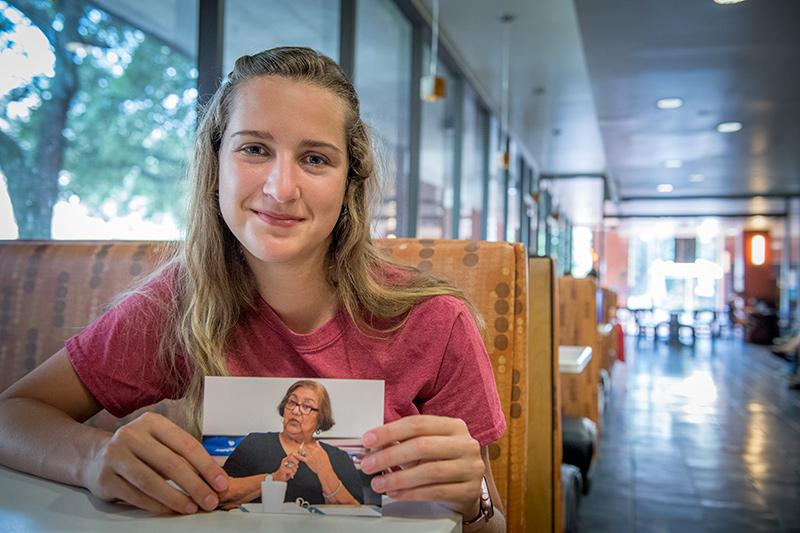Recent grad protects local Native American languages
Through her work as a linguist, Rebecca Whitney is dedicated to preserving Native American languages for future generations.
This fall, she will travel to Miami, Oklahoma, to work with her aunt, Ardina Moore — the last speaker of the Quapaw language.
"I will be recording the language from a linguistics perspective and will also learn to speak it myself directly from my aunt,” said Whitney, a 2018 School of Liberal Arts graduate.
“Once you uncover some of the vocabulary, you move on to eliciting sentences and can then study the language’s structure.”
— Rebecca Whitney, 2018 School of Liberal Arts graduate
“I will transcribe Quapaw using the International Phonetic Alphabet, a phonetic system used to transcribe sounds in any language,” added Whitney. “Once you uncover some of the vocabulary, you move on to eliciting sentences and can then study the language’s structure.”
Whitney was honored this spring with an Outstanding Scholar Award from Tulane’s Interdisciplinary Program in Linguistics. In May she earned dual degrees in music performance and linguistics.
Sponsored by the Endangered Language Fund, Whitney initially found inspiration for the project in 2017 while attending the National Breath of Life Archival Institute for Indigenous Languages, a two-week biennial institute that brings linguistics researchers from across North America to Washington D.C.
“It's an opportunity for tribal members to work with linguists so that they can study archival records of their languages,” said Whitney. “While I was there, I was surrounded by a lot of other indigenous people for the first time in my life. Faced with the task of trying to revitalize Quapaw and bring it back to life feels impossible a lot of the time, but being surrounded by people who are in the same situation made me realize that everyone still has hope.”
This summer, Whitney also collaborated with Judith Maxwell, director of the Interdisciplinary Program in Linguistics, to lead a service-learning summer course offered through the Tunica Language Project, a collaboration between the Tunica-Biloxi Tribe of Louisiana and Tulane University.
Students enrolled in the class have the opportunity to teach children at the Tunica Language Summer Camp located in Marksville, Louisiana.
“The Tunica language was not spoken for decades, and they are bringing it back to life,” said Whitney.

